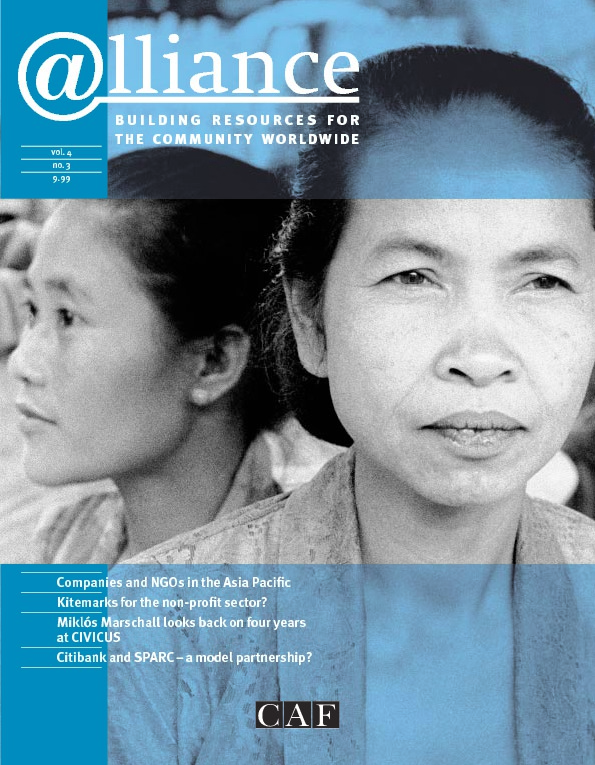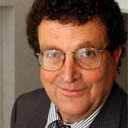If donors were in the business of electrifying a township, it might be prudent to buy accredited electric plugs with kitemarks. However, once they move beyond such concrete projects, the use of accreditation diminishes rapidly in value, and can have dangerous consequences for development.
There are two main problems with accreditation for use in development: one is technical, linked to the nature of accreditation; the other is that accreditation can serve to entrench a system of unequal relationships. This article considers these problems with particular reference to work in Africa between northern NGOs and African NGOs, but it will hopefully be of interest more widely to donors elsewhere in the world.
Technical problems
Accreditation can work positively in systems where there is equality between the assessment agency and the assessed, and the stakes are not too high. An example is the ‘investors in people’ scheme in the UK, where organizations opt in to a comprehensive programme of human resource development leading to a respected symbol they can use on their letterhead.
However, when the assessor is more powerful and linked to funding, accreditation often becomes a vehicle for forcing cultural change and imposing a new set of values – the controversial introduction of quality assurance in British universities and schools is an example of this.
In social systems accreditation can give an impression of order, while introducing blind spots on what is really happening. These blind spots include the bigger picture of strategic change facing organizations or the sector. They can also include the fact that accreditation can inadvertently reinforce a status quo that favours those setting up the system, and can act as a method of exclusion.
Another danger with accreditation is that it can take refuge in measuring things that are easy to measure, often giving an illusion of meaningful results. For example, researchers in higher education in the UK are required to produce four quality publications in four years for a research assessment exercise. This system is easily measurable but initially led to ‘salami slicing’ of articles to produce multiple similar versions of the same original work – hardly an improvement in quality.
Development problems
The technical problems of accreditation are magnified when applied to the development processes. A recent declaration sheds light on this context.
In July 1998, 20 African NGOs funded by a number of major northern NGOs met to discuss their relationships with their funders. The resulting Harare Declaration on Development Relations[1] calls for a move away from disempowering ‘parent-child’ relationships. The declaration seeks to stimulate debate about the nature of development relationships, and who sets the agenda.
This is an area Transform has researched over the last five years. It has found that many NGOs in Africa feel constrained by the overbearing policies and practices of both northern NGOs and bilateral donors. There has been much talk of partnership but often this has done little to effect real change. At a recent conference, NGOs from Africa spoke of the need for NGOs to be self-determining, and to ‘rise up and walk’ rather than be project implementers for northern NGOs.[2]
Such calls can be dismissed as ‘donor bashing’, yet this is to misunderstand what is being asked for. The task is to find ways of redressing the imbalance of power and freeing the potential of local NGOs to think and act, to finding new models of accountability that liberate NGOs while keeping donors happy. This is likely to lead to better development, and ultimately greater impact.
Introducing standards and accreditation is not going to effect this shift in power. On the contrary it is likely to further strengthen the power of northern donors, who are likely to be the ones developing, or at least editing, the standards.
A case study – the business excellence model
These ideas can be illustrated by looking at the possible take-up in development of a new quality framework that is rapidly gaining in popularity. The ‘business excellence model’ was developed in Europe as a tool for self-assessment and for promoting ‘business excellence’. It looks at dimensions of internal organization like leadership, finance systems and processes and the organization’s impact – on its staff, its customers and the environment. It thus offers in one simple model a powerful map for looking at an organization.
While it is not promoted specifically as an accreditation tool, it is linked to a prestigious quality award in Europe. The model has been adopted by the UK National Council for Voluntary Organizations as the preferred quality management approach in the UK voluntary sector. Recently, UK development agencies have been considering using it in their work.
In the quest for measurement there will a temptation for northern NGOs to adopt such models and set up, or further refine, their own accreditation systems for work with those they fund. It is a project manager’s dream: prior to funding, all partner NGOs could be required to conduct an assessment against the organizational criteria of the excellence model, or equivalent, to ensure they meet certain standards. The northern donor could enter the data in their database and set standards to be achieved before more funding is remitted. Partners could be required to report on their own capacity development. Capacity-building would at last have the tool to measure success.
In some cases a group of donors might act together to set up such a system. The proposal for a global system elsewhere in this magazine could become the ultimate extension of this: in such a vision someone could sit in an office in the UK, press a button on a computer and download the state of capacity of NGOs across the known world.
Conclusion – consuming development?
Northern donors have a legitimate concern to ensure that their resources are used wisely. Many feel under great pressure to assure quality and to demonstrate impact to their trustees and their own donors. Moves such as accreditation are a comfortable natural progression, and are supported by the increasing use of accreditation in everyday life in Europe and America.
However, donors are not parents making choices on behalf of their children, by looking at school league tables. They are not railway ‘customers’ gazing at a passenger charter and working out their compensation if the train is late. Donors are not consuming development.
The Harare Declaration sets out a different perspective. It stresses the uniqueness of southern NGOs, not as the ‘products’ purchased by northern NGOs but as autonomous organizations grappling with complex problems in challenging environments and seeking adult relationships with northern NGOs in meeting these challenges.
Accreditation initiated by official donors, northern NGOs or bodies like CAF is a push in the wrong direction. Northern Donors must strenuously resist the temptation to use accreditation and standards to further strengthen their position of influence at the expense of the autonomy and vitality of organizations they seek to support. Northern NGOs would be better off starting by examining their existing project management systems, policies and practices and finding new ways of working, based on a reassessment of their relationship with their partners.
Graham Thom is Head of Transform(UK),which is part of the Transform Network, a network of African NGO support organizations committed to facilitating organizational and institutional change of southern NGOs. He can be contacted on + 44 171 388 0800 or at TransforUK@aol.com
1 The Harare Declaration on Development Relationships, published by Transform (1998), available free of charge from TransforUK@aol.com
2 Oswald Kasaisi, ‘Rise Up and Walk’, in GrahamThom and Margaret Simbi (eds) Unequal Partnership (Transform, forthcoming). The paper was first presented at the ‘NGOs in a Global Future’ conference held at Birmingham University, UK, in January.






Comments (0)